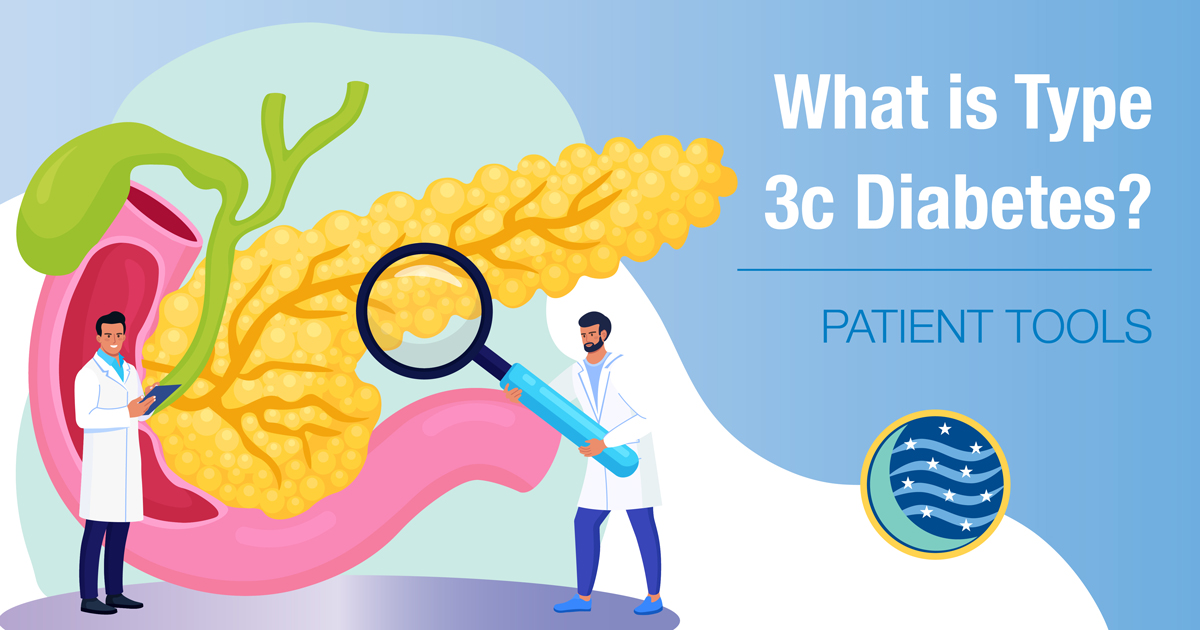Type 3c diabetes develops when the pancreas is damaged in ways that affect its ability to produce insulin. Conditions such as chronic pancreatitis, cystic fibrosis, and pancreas surgery, either complete or partial removal (pancreatectomy), can lead to pancreas damage that causes diabetes. Type 3c diabetes (also known as pancreatogenic diabetes) is diabetes that comes secondary to pancreas diseases, involving the exocrine and digestive functions of the pancreas.
Diabetes is a health condition that occurs when blood sugar, or glucose levels in the blood, are too high. This develops when the pancreas doesn’t make any or enough insulin (a hormone), or the body doesn’t respond to insulin properly and glucose levels rise in the blood.
The pancreas has two main functions in the body:
Exocrine function: Produces enzymes including amylase, proteases, and lipase that assist with the digestion of carbohydrates, proteins, and fats.
Endocrine function: Sends out hormones (mainly insulin and glucagon) that control the amount of sugar in the bloodstream.
Pancreas damage that leads to type 3c diabetes may also affect the pancreas’s ability to produce the enzymes that help with digestion and absorption of nutrients. This condition is called exocrine pancreatic insufficiency (EPI).
The difference between the various types of diabetes is what causes them. Type 1 diabetes is an autoimmune disease in which the immune system attacks and destroys insulin-producing cells in the pancreas for unknown reasons. Individuals with type 1 always need insulin to manage the condition. Type 2 diabetes develops when the body doesn’t make enough insulin and/or the body’s cells don’t respond normally to the insulin (insulin resistance). Individuals with type 2 diabetes may manage the condition with lifestyle changes, oral medication and/or insulin. Type 3c diabetes results from damage to the pancreas that isn’t autoimmune in nature. People with type 3c often also lack the ability to produce enough enzymes their pancreas makes for digestion and absorption of nutrients. In this form of diabetes, the amount of insulin being made by the pancreas can vary. Some individuals will need to take oral diabetes medications while others may also need insulin to manage the condition.
The worldwide prevalence of type 3c diabetes is unknown. It is often misdiagnosed and under recognized because there is not a universally accepted diagnostic criteria. The management of type 3c diabetes depends on the level of damage and what caused the damage to the pancreas but may include oral medications, insulin injections, and diet and lifestyle modifications.
If you or a loved one thinks you have type 3c diabetes, please speak with your healthcare team. We are here to help.


